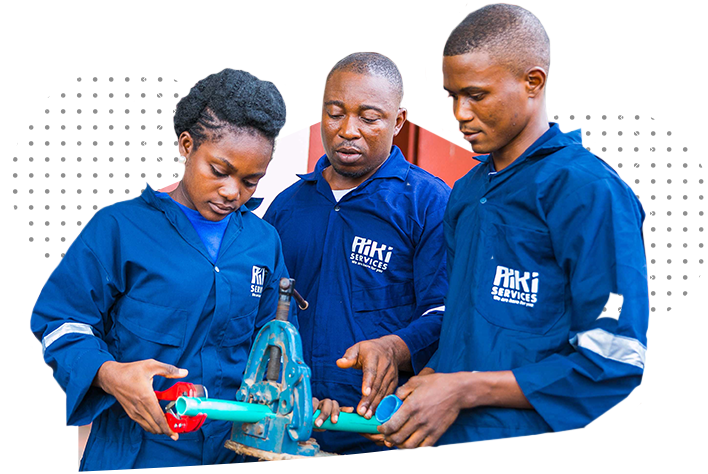In this part of the world, it’s no news that people dedicate time to go through school, study thoroughly for a ‘white-collar job’ but when it comes to actually learning a skill it’s been done shabbily with little or no attention to the technical know-how, the right attitude and vigor. This has made it quite difficult to obtain the services of not just a skilled manual laborer but one with the right attitude, reliability, and in-depth understanding of the skill, hence the challenges of getting skilled technicians.

But in questioning why this is so, we can associate it with the stigma associated with technical professions that contributes to the reluctance of individuals going this route especially the educated ones. Society tends to glorify white-collar jobs while overlooking the critical role that skilled technicians play in various sectors. This discourages potential individuals from considering technical careers, and causing the shortage of skilled labor, Societal mindset creates a scarcity of skilled technicians, hindering industries that heavily rely on their expertise.
Another primary challenge lies in the educational system itself. Traditional educational institutions often prioritize academic achievement over vocational training. As a result, students may not receive adequate exposure to technical skills or hands-on experience during their formative years. The lack of emphasis on technical education perpetuates the misconception that manual labor is inferior to white-collar professions, discouraging individuals from pursuing careers in technical fields.
In addressing the challenges of getting skilled technicians, we believe proactive measures must be taken at various levels. Firstly, there is a need for greater collaboration between educational institutions and industries to align curriculum with industry needs and provide students with practical training opportunities. Vocational training programs and apprenticeships can serve as an effective pathways for individuals to acquire technical skills and gain hands-on experience. Schools should teach more practical skills and give students chances to learn by doing.
READ ALSO: Redefining Technical Services

Also, ongoing investment in workforce development initiatives and lifelong learning programs is essential to ensure that technicians remain up-to-date with evolving technologies and industry standards. By prioritizing both technical proficiency and soft skills in recruitment and training practices, employers can cultivate a pool of skilled technicians who are not only competent but also reliable. We need to show people that jobs needing technical skills are valuable and important.
In conclusion, the challenges of getting skilled technicians stem from various societal, educational, and industry-related factors. Addressing these challenges requires a multifaceted approach that involves reevaluating societal attitudes towards technical professions, enhancing educational opportunities for skill development, and fostering a culture of continuous learning and professionalism within industries. By doing so, we can overcome the shortage of skilled technicians and ensure a sustainable workforce for the future.

